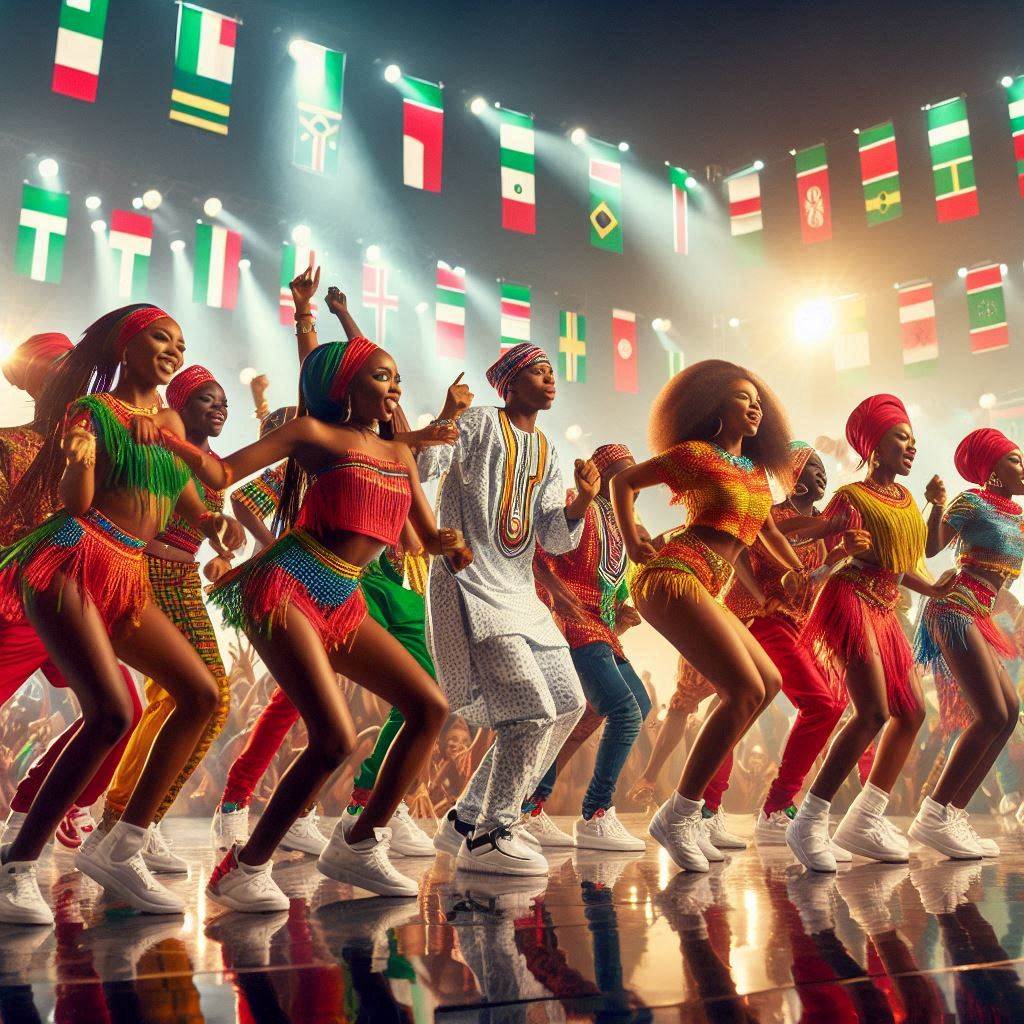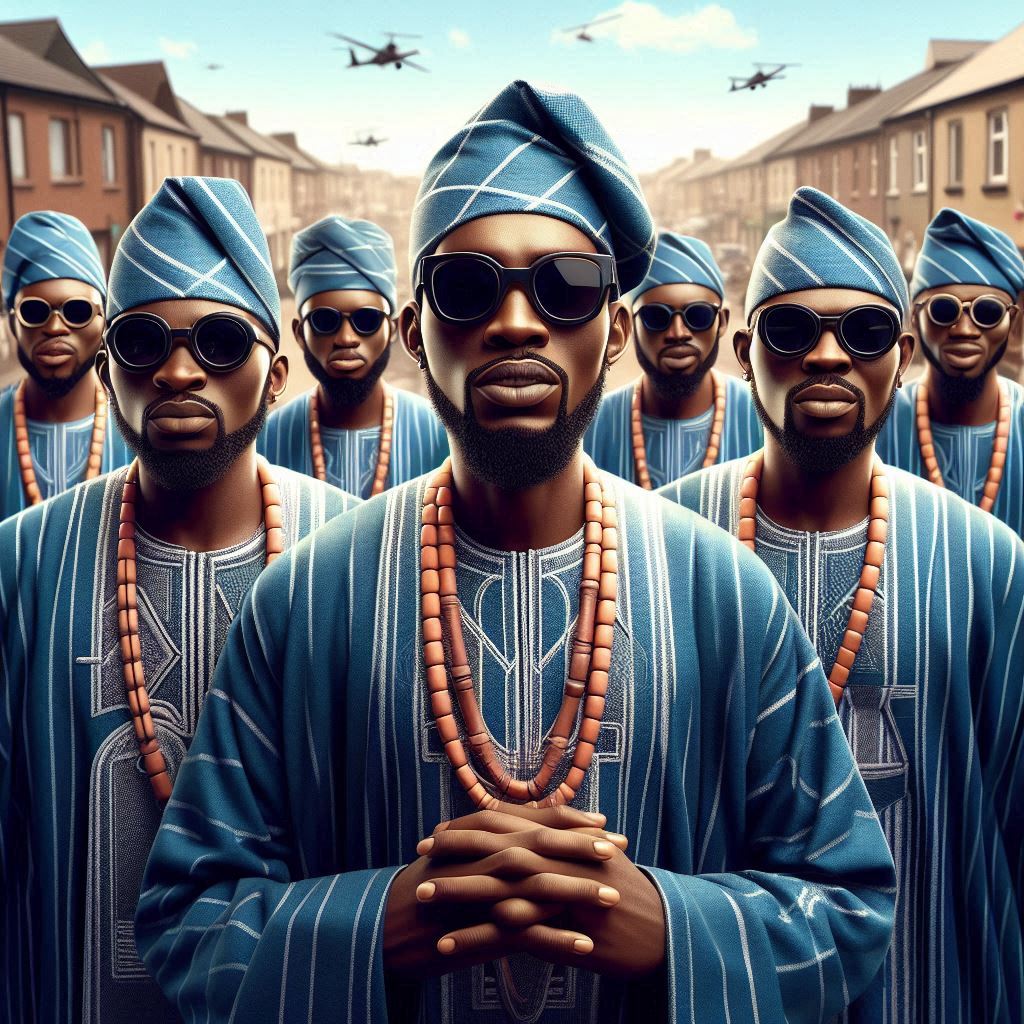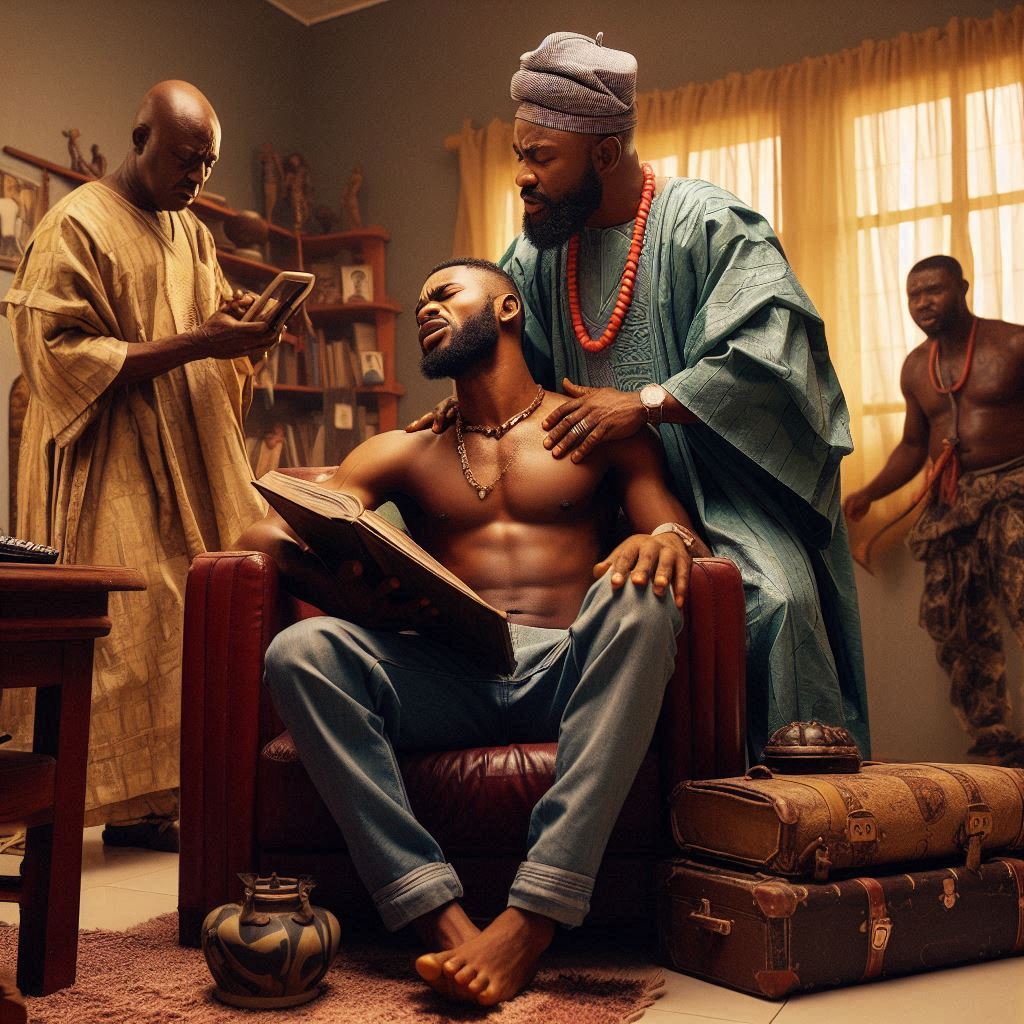Introduction
Nigeria’s dance culture stands as a vibrant tapestry interwoven with the threads of tradition, innovation, and expression.
Within this cultural landscape, several renowned dance groups and choreographers have emerged, each adding their unique flair to the rhythmic narrative of Nigerian dance.
Dance holds a sacred place in Nigerian culture, serving as a conduit for storytelling, communal bonding, and spiritual expression.
From the rhythmic beats of traditional drumming to the contemporary fusion of movement and music, dance permeates every aspect of Nigerian life, reflecting the country’s rich cultural tapestry.
Beyond its cultural significance, Nigerian dance has transcended borders, leaving an indelible mark on the global dance scene.
Through their captivating performances and innovative choreography, Nigerian dancers and choreographers have garnered international acclaim, influencing dance styles and trends worldwide.
In this blog section, we delve into the world of famous Nigerian dance groups and choreographers, exploring their contributions to the local and global dance communities and celebrating the enduring legacy of Nigerian dance on the world stage.
Dance Group: Spirit of David
Founded in 1999 by Kafayat Shafau-Ameh, Spirit of David is a renowned Nigerian dance group.
History and Background
- Started as a small dance group in Lagos, Nigeria, by Kafayat Shafau-Ameh.
- Over the years, it has grown to become one of the most popular dance groups in the country.
- They have performed at various events locally and internationally, showcasing their talent.
Unique Style of Dance and Choreography
- Spirit of David is known for their energetic and synchronized dance routines.
- They fuse traditional Nigerian dance styles with contemporary moves, creating a unique blend.
- The group incorporates acrobatics, stunts, and storytelling into their performances, captivating audiences.
Notable Performances and Collaborations
- Spirit of David has performed at major events such as concerts, award shows, and festivals.
- They have collaborated with top Nigerian musicians and artists to create memorable performances.
- The group has also represented Nigeria on international stages, earning recognition and acclaim.
Contribution to the Nigerian Dance Scene
- Spirit of David has helped elevate the Nigerian dance scene to a global level.
- They have inspired a new generation of dancers and choreographers in the country.
- The group’s dedication to their craft and passion for dance has made them influential in the industry.
In short, Spirit of David continues to push boundaries and raise the bar in Nigerian dance with their creativity and passion.
Read: Scholarships for Christian Religious Studies Students
Dance Group: Qudus Onikeku Dance Company
Qudus Onikeku is a renowned Nigerian dancer and choreographer who founded the Qudus Onikeku Dance Company.
Background Information
- Qudus Onikeku was born in Lagos, Nigeria, and started dancing at a young age.
- He trained in traditional Yoruba dance as well as contemporary dance forms.
- Onikeku later studied at renowned institutions such as the Alvin Ailey American Dance Theater.
Innovative and Contemporary Techniques
- The Qudus Onikeku Dance Company is known for blending traditional African dance with modern techniques.
- They incorporate elements of hip hop, ballet, and contemporary dance in their performances.
- Their choreography often explores social issues and themes relevant to Nigerian society.
Pushing Boundaries
- Qudus Onikeku and his dance company have pushed the boundaries of traditional dance in Nigeria.
- They challenge stereotypes and break new ground by fusing diverse dance styles.
- Their work is a reflection of Nigeria’s rich cultural heritage and vibrant artistic scene.
Awards and Recognition
- The Qudus Onikeku Dance Company has received numerous awards for their innovative choreography.
- They have been recognized both nationally and internationally for their contributions to the dance world.
- Onikeku himself has been honored with prestigious awards for his outstanding choreographic work.
Overall, the Qudus Onikeku Dance Company is a trailblazer in the Nigerian dance scene, pushing boundaries and creating innovative performances that blend tradition with modernity.
Read: Challenges in Teaching Christian Religious Studies
Kafayat Oluwatoyin Shafau-Ameh (Kaffy)
Kaffy is a renowned Nigerian choreographer known for her exceptional dance skills and innovative choreography.
Her journey in the dance industry began at a young age, where she discovered her passion for dance and decided to pursue it as a career.
As one of the pioneers of dance in Nigeria, Kaffy has paved the way for many dancers in the country to showcase their talent on a global platform.
Popular Dance Routines and Performances
- Kaffy is known for her energetic and captivating dance routines that blend various dance styles seamlessly.
- Her performance in the music video for P-Square’s hit song “Do Me” gained widespread acclaim for its creativity and precision.
- She has choreographed performances for top Nigerian artists such as Davido, Wizkid, and Tiwa Savage, showcasing her versatility as a choreographer.
Impact on the Nigerian Entertainment Industry
- Kaffy’s contribution to the Nigerian entertainment industry cannot be overstated, as she has elevated the standard of dance performances in the country.
- She founded the Imagneto Dance Company, through which she provides training and mentorship to aspiring dancers, nurturing the next generation of talent.
- Her influence extends beyond the dance scene, as she is also a respected judge on popular reality TV dance shows, inspiring young dancers to pursue their dreams.
All in all, Kaffy’s passion, talent, and dedication to the art of dance have solidified her position as one of the most influential choreographers in Nigeria.
Read: Impact of Christian Religious Studies on Nigerian Society

Learn More: Exploring Nigerian Fashion Through Social Media
See Related Content: Government Policies Impacting Nigerian Economics
Gain More Insights: How to Preserve and Restore Nigerian Art
See Related Content: Exploring Nigeria’s Rich Artistic Heritage
Delve into the Subject: Role of Anthropology in Nigerian Archaeological Discoveries
Papi J Ameh
Background information on Papi J Ameh and his work as a choreographer
Papi J Ameh, a prominent figure in Nigeria’s dance scene, began his journey in Lagos, where he immersed himself in street dance culture.
His passion for dance led him to explore various styles and techniques, eventually carving out a niche for himself as a choreographer.
Over the years, Papi J has honed his skills through dedication and hard work, establishing himself as one of the most sought-after choreographers in the country.
His unique style and approach to dance choreography
Papi J’s choreographic style is a blend of street dance, afrobeat, and contemporary influences, characterized by its fluidity, precision, and storytelling elements.
He is known for his ability to seamlessly fuse different dance genres, creating dynamic and captivating routines that resonate with audiences.
Papi J’s choreography often incorporates intricate footwork, acrobatic movements, and emotive expressions, allowing him to convey powerful narratives through dance.
Any famous artists or dance groups he has worked with
Throughout his illustrious career, Papi J has collaborated with some of Nigeria’s biggest artists and dance groups.
From creating choreography for music videos to choreographing live performances for renowned musicians, Papi J’s work has been featured in various high-profile projects.
Artists such as Wizkid, Davido, and Tiwa Savage have all sought out Papi J’s expertise to elevate their performances and bring their music to life through dance.
Additionally, Papi J has collaborated with esteemed dance groups like the CEO Dancers, further cementing his reputation as a versatile and skilled choreographer.
His influence on the Nigerian dance community
Papi J’s influence extends beyond his choreographic work; he is also a mentor and inspiration to aspiring dancers across Nigeria.
Through his dance company, the Papi J Ameh Dance Company, he provides training and guidance to young talents, helping them develop their skills and pursue careers in dance.
Papi J’s profound impact on the Nigerian dance community stems from nurturing the next generation of dancers, empowering them creatively.
Overall, Papi J’s immeasurable contributions to Nigerian dance culture inspire both dancers and audiences, cementing his legacy.
Read: Renowned Nigerian Psychologists to Follow
Delve into the Subject: Art and Technology: Innovations in Nigerian Art
Dance Group: DNMT
DNMT as a popular Nigerian dance group
DNMT has emerged as a prominent force in Nigeria’s vibrant dance scene, garnering widespread acclaim and adoration from audiences nationwide.
With a repertoire of captivating performances and a dynamic presence both on and off the stage, DNMT has solidified its position as a beloved icon in the realm of Nigerian entertainment.
Their signature dance moves and routines
DNMT’s choreographic style is characterized by its seamless fusion of traditional Nigerian dance elements with contemporary flair.
They meticulously craft routines, incorporating intricate footwork, synchronized movements, and dynamic formations showcasing the group’s skill and artistry.
Each performance is a mesmerizing display of creativity and expression, leaving spectators spellbound and eager for more.
Viral dance videos or performances they have done
DNMT’s infectious energy and captivating performances have captured worldwide attention, leading to several viral dance videos on social media.
Their choreography inspires countless individuals to replicate moves and share videos online, synonymous with innovation and trendsetting.
DNMT’s undeniable influence on digital culture includes viral challenges and impromptu flash mobs, solidifying their status as cultural influencers.
Their impact on the youth culture in Nigeria
DNMT serves as a beacon of inspiration for the youth of Nigeria, embodying the values of passion, perseverance, and creativity.
Through their performances and community engagement initiatives, DNMT empowers young people to pursue their dreams and express themselves through dance.
They offer a platform for aspiring dancers, enabling them to showcase talent and connect with peers, fostering camaraderie.
DNMT uplifts and empowers the next generation, showcasing dedication to positively impacting youth culture in Nigeria and beyond.
Conclusion
In the vibrant tapestry of Nigerian culture, dance groups and choreographers stand as luminaries, shaping the nation’s artistic landscape.
Their tireless dedication and creative ingenuity have propelled Nigerian dance onto the global stage, garnering admiration and acclaim.
These talented individuals not only entertain but also serve as custodians of Nigerian heritage, preserving traditional dance forms and infusing them with contemporary vibrancy.
Through their performances, they weave narratives of identity, resilience, and unity, captivating audiences worldwide.
As guardians of Nigerian culture, dance groups and choreographers embody the spirit of cultural preservation and promotion.
Their contributions extend beyond the stage, fostering a sense of pride and belonging among Nigerians at home and abroad.
It is incumbent upon us to recognize and support their endeavors, for they are the torchbearers of Nigerian artistry and cultural expression.
Let us applaud their achievements, champion their endeavors, and celebrate their invaluable role in enriching the cultural fabric of Nigeria and beyond.




